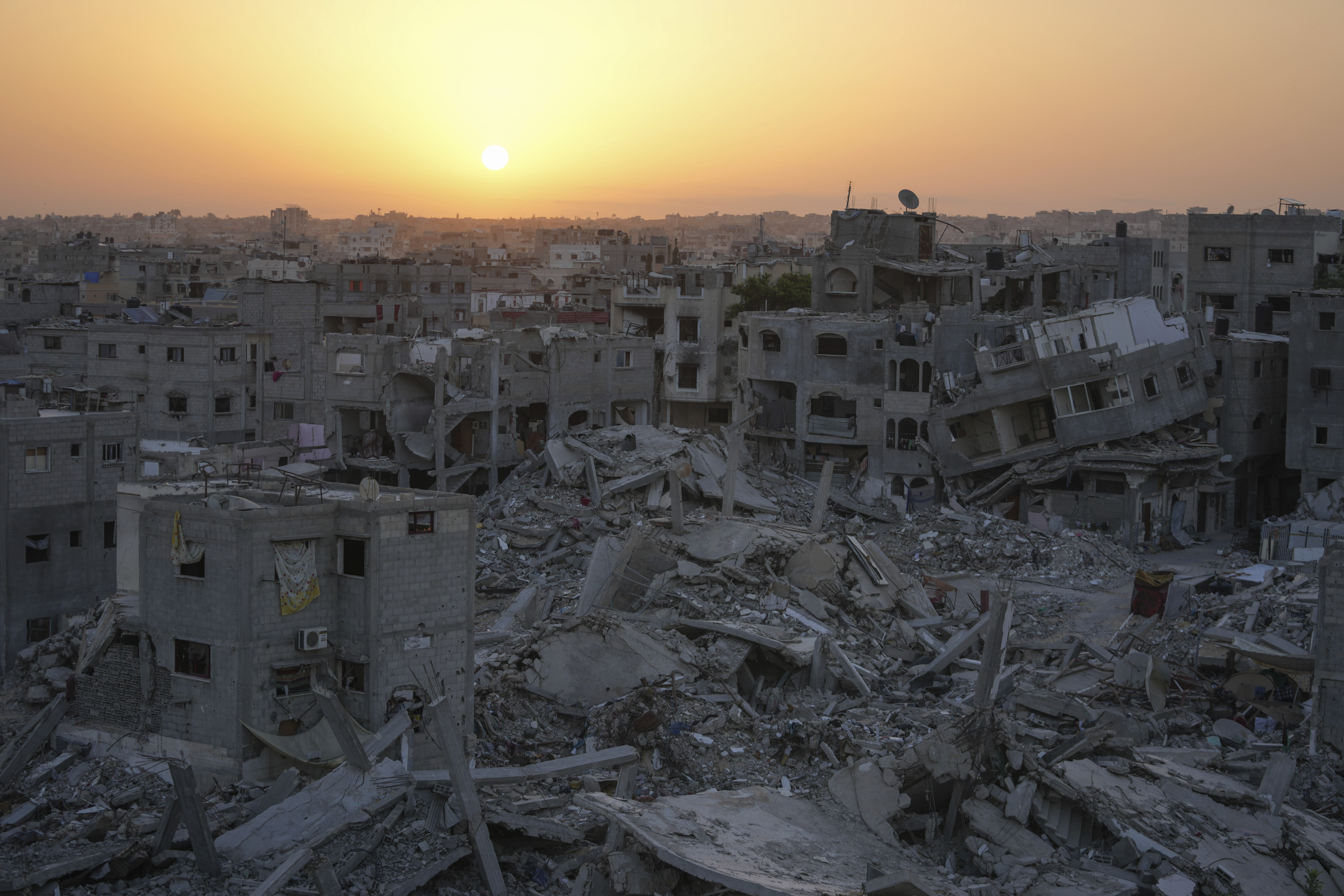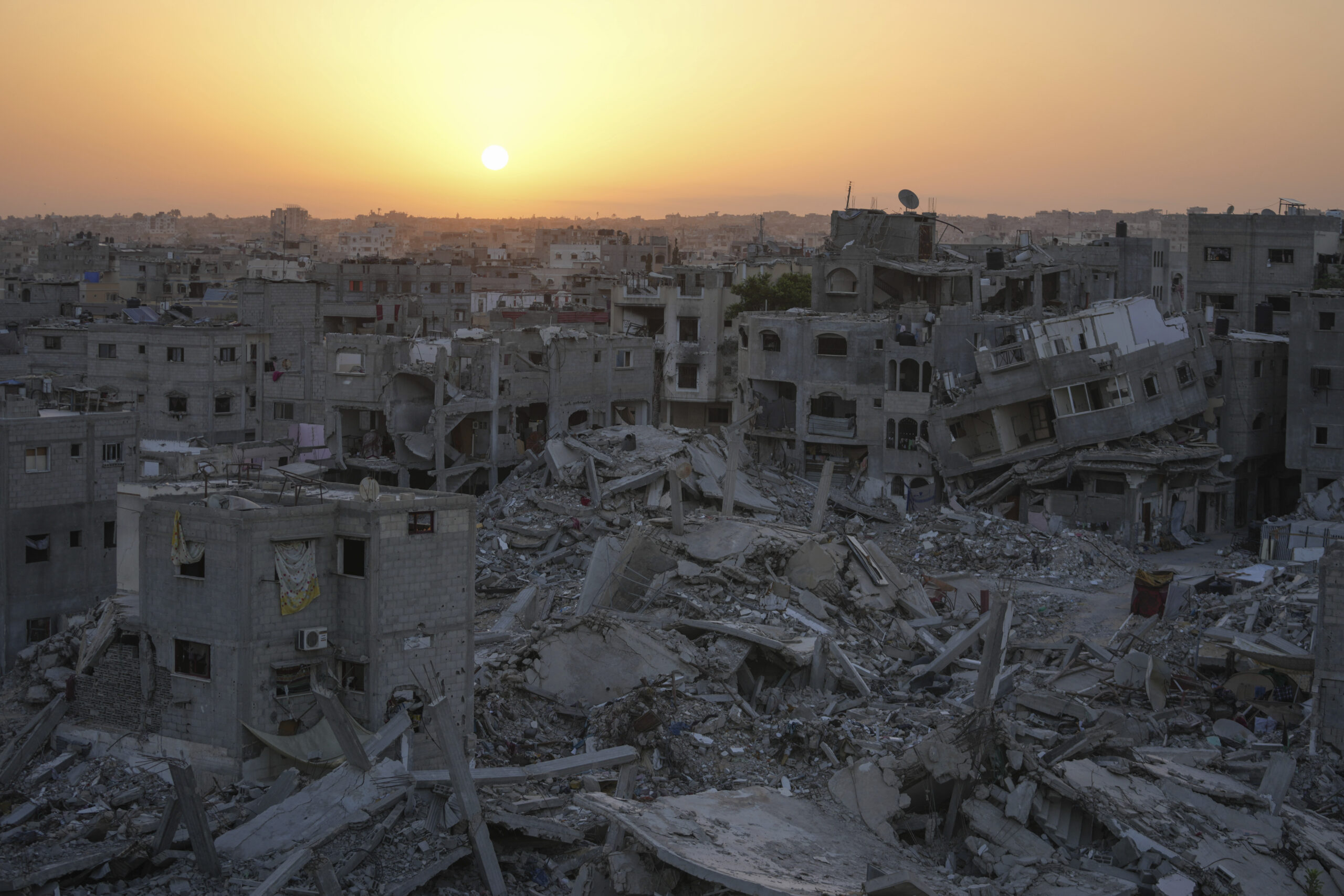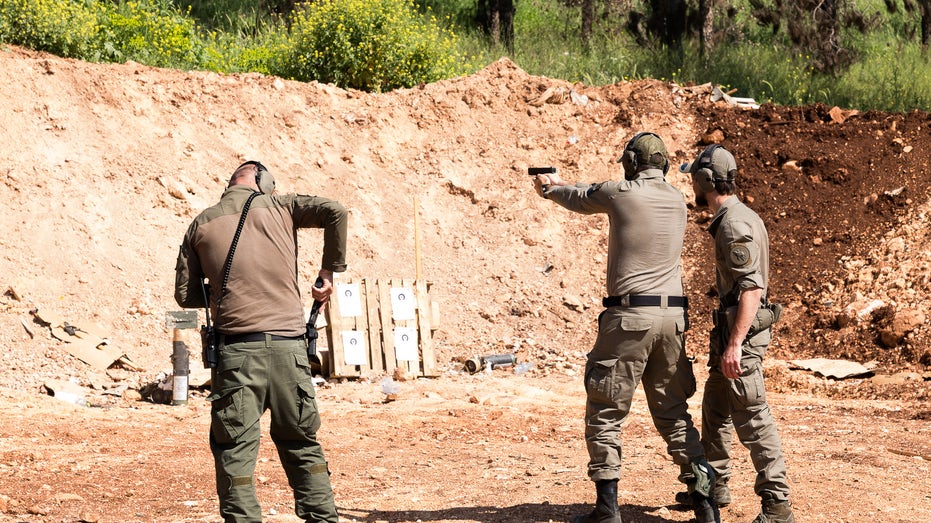
A Shift in Perspective: Firearms and Families in Post-Attack Israel
In a Jerusalem delivery room, amidst the intensity of labor, an unexpected incident caught the attention of the attending midwife. Erga Froman, who was assisting a laboring mother, was distracted when she heard the worried mother express discomfort. “She told me something was hurting her,” Froman recounted. “That’s when I realized it was my gun. It had shifted forward from its holster and touched her.” Following the delivery, a poignant photograph emerged – Froman standing beside the newborn, still clad with her firearm. “It’s a picture of contrasts,” she reflected.
A Newfound Reality Post-Oct. 7
Froman, a mother of five residing in the scenic Golan Heights of northern Israel, had never fired a gun nor desired a firearm license. Opting for non-military national service instead of joining the Israel Defense Forces (IDF), she believed her purpose lay in nurturing life rather than bearing arms. However, the landscape of security dramatically transformed after Hamas launched a brutal terrorist attack on October 7, 2023, which resulted in the deaths of over 1,200 individuals and disrupted the long-held belief in personal safety among many Israelis.
“That night, my husband and I had a realization… I realized I needed protection.” – Erga Froman
By dawn, reflecting on her nighttime drives on treacherous roads as part of her profession, Froman promptly submitted her firearm license application. “I hope I never have to use it,” she stated resolutely, “but I’m prepared if I do.”
Historical Context: Reluctance to Arm
Historically, personal firearm ownership in Israel was scarce, despite military training being commonplace due to mandatory service. Many viewed guns as liabilities rather than defensive tools, compounded by stringent licensing laws that deterred ownership. The prevalent mindset leaned towards reliance on state security forces for protection, with terrorism perceived as the primary risk, which kept firearms out of civilian lives.
The devastating events of October 7 altered this calculus almost instantly. “Just as there weren’t enough medical teams available that day, there also weren’t enough defense resources,” Froman stated. In light of this shocking reality, community medical teams emerged, alongside individuals bearing arms to provide immediate self-defense when necessary.
Surge in Firearm Licenses
In the wake of the attack, there was an unprecedented spike in gun license applications, amounting to over 260,000 in just a few months – nearly matching the total from the previous two decades. Tens of thousands of these applications were approved rapidly, leading to a tenfold increase in licenses compared to the previous year. This unprecedented shift ignited vigorous debate across the nation as Israelis sought a balance between personal safety and the implications of expanded firearm ownership.
Families in Crisis: The Decision to Arm
Ayala Mirkin, a mother of three from Shiloh in the West Bank, faced a challenging decision when considering a firearm license. With her husband deployed as an IDF reservist to Gaza, she suddenly found herself alone with her children. “Driving through Arab villages, I felt unsafe,” she articulated. “I knew I had to take protection into my own hands.” Although the approval process for her license was expedited post-October 7, the inundation of requests still delayed completion.
“I don’t want a gun… The happiest day of my life will be when I can give it back.” – Ayala Mirkin
Mirkin now carries her firearm whenever she leaves her settlement, a reluctant measure for self-preservation. “This weapon is for protection, not for killing,” she affirmed. To her, firearms symbolize survival in a tumultuous landscape.
Concerns Over Rapid Gun Ownership
Oren Gozlan, a veteran paratrooper and father residing near Tulkarem, echoes similar sentiments regarding the urgency to arm oneself in this new environment. “Having a gun in a home with kids was always a scary thought,” he shared. “But the need to protect my family outweighs that fear now.” However, he raised concerns about the expedited nature of firearms training for civilians. “At the shooting range, I saw people who had never held a gun before, barely able to hit their targets. It’s frightening to think these people are now carrying firearms.”
This rapid escalation in gun ownership has opened discussions about the potential risks associated with widespread personal firearm access. Gozlan expressed his anxiety about the possible consequences of misidentification in tense situations – a fear shared by many new gun owners in this altered reality.
Conclusion: Navigating a New Normal
As Israel grapples with its new normal, the once-unthinkable shift towards widespread firearm ownership is a testament to the shifting landscape of safety and security. For many families, the decision to bear arms is rooted in a fundamental instinct to protect loved ones amidst fear and uncertainty. Each individual story illustrates a deeper narrative about the desire for personal safety, the anxiety of newfound responsibilities, and the hopes for a peaceful future devoid of hostility.
In this fraught environment, the challenges posed by the rise of firearms intersect with the aspirations of a nation yearning for stability and life, even as it confronts the shadows of conflict. The lived experiences of individuals like Erga Froman, Ayala Mirkin, and Oren Gozlan will shape the future of security in Israel as they navigate this complex moral and emotional terrain.


















